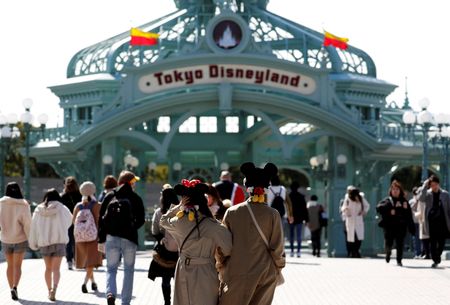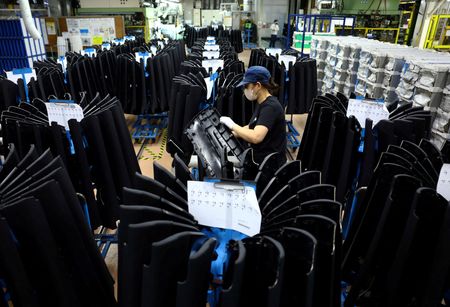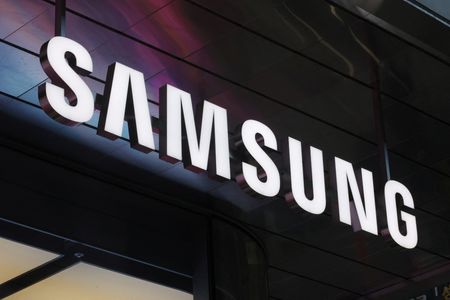By Rocky Swift
TOKYO (Reuters) -Japanese tourism-related shares plunged on Monday after China warned its citizens against travel to its North Asian neighbour following a widening diplomatic rift over Taiwan.
Isetan Mitsukoshi, a department store operator with sizeable sales to Chinese visitors, sank 11.4%, poised for the biggest drop in more than a year. Tokyo Disneyland operator Oriental Land lost 5.1%, while Japan Airlines shed 3.9%.
China on Friday warned Japan of a “crushing” military defeat if it used force to intervene over Taiwan, and cautioned Chinese citizens against visiting Japan. Tokyo urged Beijing on Saturday to take “appropriate measures” following the travel warning, Kyodo news agency reported.
Fuelled by the weak yen, tourism has become an increasingly important part of Japan’s economy. Visitors from mainland China comprised about 24% of all tourists to Japan in September, the second most after those from South Korea, according to the Japan National Tourism Organization.
Beijing’s travel boycott of Japan could result in an economic loss of about 2.2 trillion yen ($14.23 billion) on an annual basis, reducing the nation’s real gross domestic product by 0.36%, according to an estimate by Takahide Kiuchi, executive economist at Nomura Research Institute.
Ryohin Keikaku, operator of Muji brand stores, sank 9.4% in Tokyo trading. Fast Retailing, which has more than 900 Uniqlo stores in mainland China, dropped 5.6%. The benchmark Nikkei gauge of shares was down 0.7%.
Tensions between Tokyo and Beijing have heated up since Japan’s newly elected Prime Minister Sanae Takaichi said on November 7 that a Chinese attack on Taiwan could amount to a “survival-threatening situation” and trigger a potential military response from Tokyo.
A diplomatic rift with China could have a bigger toll on Japan than just a dent in its tourism sector, according to Alicia Garcia-Herrero, chief economist for Asia Pacific at Natixis.
“What is crucial is Japan’s stubborn dependence on rare earth metals, which has decreased very marginally since Japan tried to diversify,” she said.
China produces over 90% of the world’s processed rare earths and rare earth magnets, essential in a wide range of technology.
Chinese companies with exposure to the Japanese market also suffered. Shares of software maker Linkage, which derives most of its sales from Japan, fell 3.5%. Airline companies also took a hit, with mainland-listed shares of Air China and China Eastern falling more than 2%.
($1 = 154.6000 yen)
(Reporting by Rocky Swift, Kaori Kaneko in Tokyo, Gregor Stuart Hunter and Rae Wee in Singapore; Editing by Sonali Paul)












